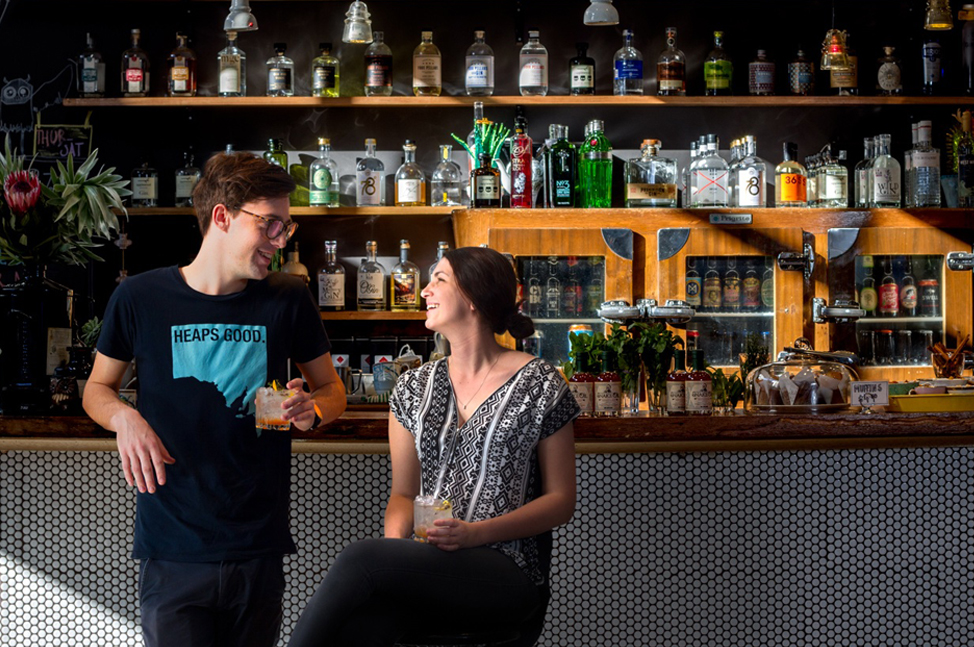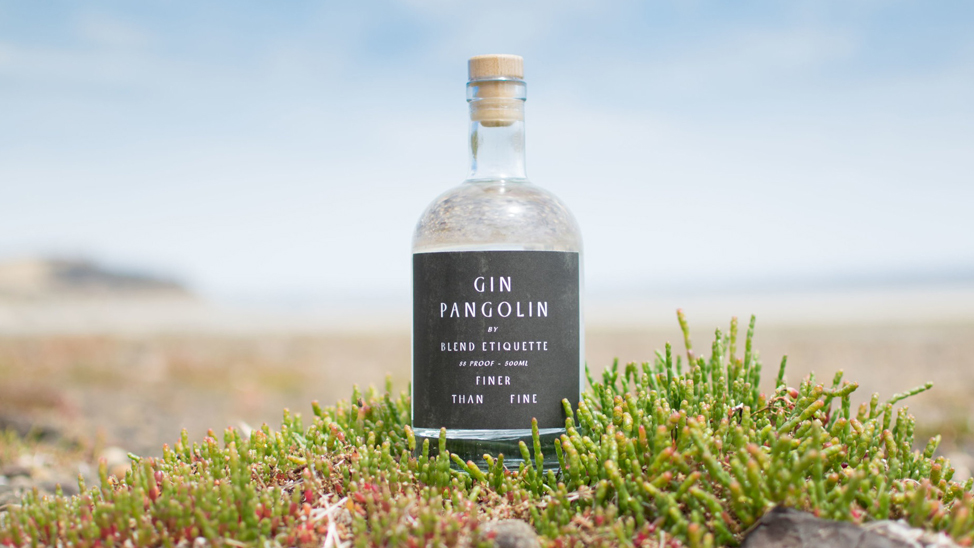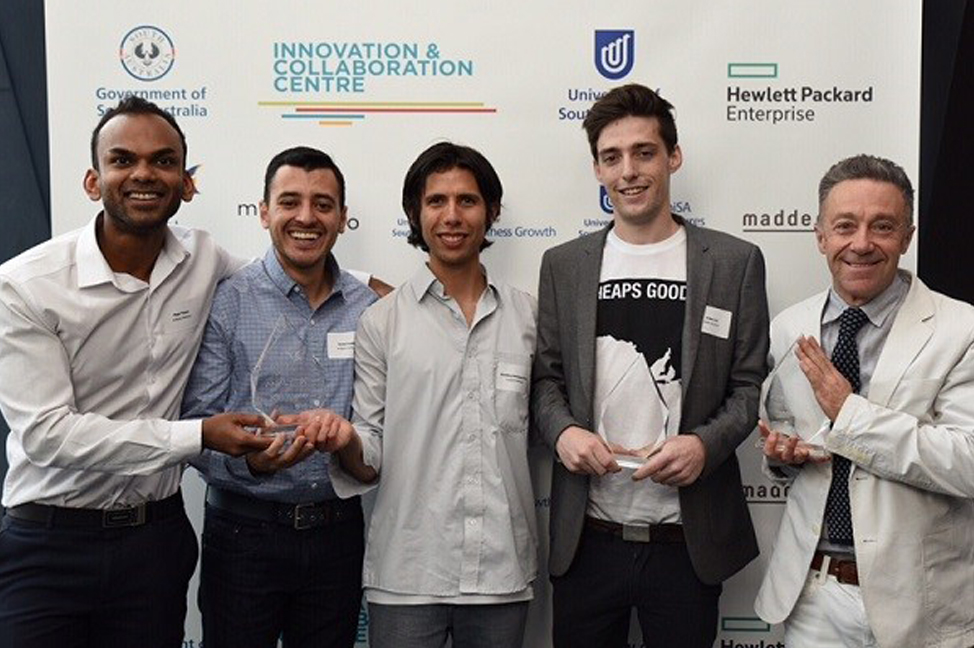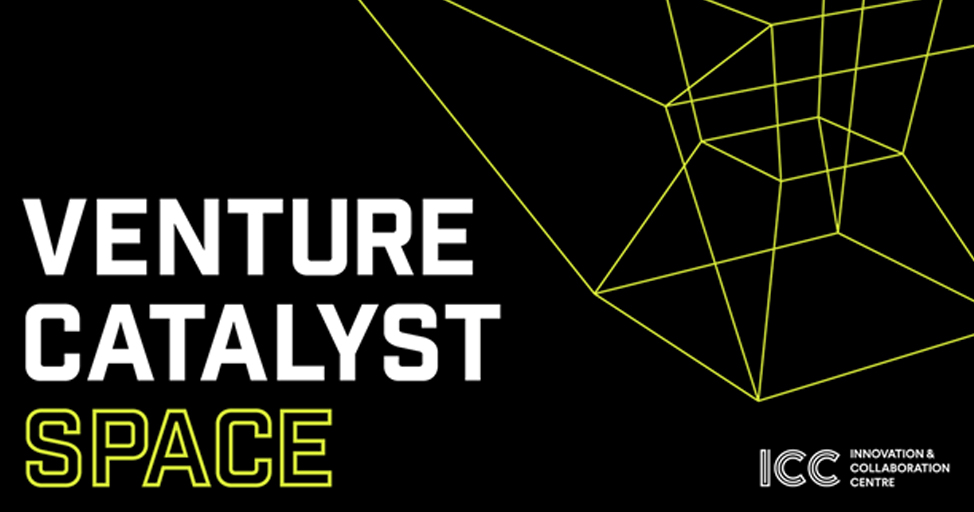29 November 2019

Lindon Lark
Graduate of Architecture and Founder Blend Etiquette
Bachelor of Architectural Studies
Master of Architectural Studies
What started out as a hobby and labour of love for Lindon Lark has now blossomed into a thriving beverage company. Blend Etiquette was first established with their bespoke premium mixer, Snake Oil Tonic Syrup, and now are developing with their very own gin, for even the most particular of gin connoisseurs.
With a little help from the Innovation & Collaboration Centre’s flagship incubation program, Venture Cataylst, and access to the UniSA’s Business School’s best advisors and mentors, Blend Etiquette has gone from strength to strength. Their latest concoction, Gin Pangolin, boasts an Australian-focussed seaside palette and an environmentally-minded conscience, collaborating with Save Pangolins to spread awareness and raise funds for pangolin conservation.
Lindon takes us through the inspiration behind the brand, the South Australian gin industry, and how he impressively managed his burgeoning business while finishing his Architecture degrees at UniSA.
You recently graduated from UniSA’s Master of Architecture this year, but have already established a beverage company - how would you describe what you do?
I am currently employed as a graduate of Architecture across two offices, but in my spare time I co-manage Blend Etiquette. My business partner (and fellow UniSA graduate), Geordan Elliss, does the day to day management of stock, accounts and deliveries, where I spend most of my time working on the business growth and direction.
This involves for instance, researching and obtaining the infrastructure required to launch a new product. I am working through the logistics of financing our brand-new distillery as we speak. Fingers crossed it’ll be launched before Christmas.
Why did you and your Geordan begin Blend Etiquette? Have you always been interested in Australian spirit industry?
I founded Blend Etiquette on my own with what began as more of a hobby. The interest initially was around business management and skills that I was hoping to acquire through a sandbox environment. However, along this journey, Snake Oil Tonics has become my little passion project. I love it
The reason for starting with Snake Oil Tonics in the beginning, was hugely influenced by my father who, to this day, is a co-owner of Kangaroo Island Spirits. He introduced me to Tonic Syrups and gave me the fundamental recipe that we, unashamedly, still use today.
 Image courtesy of Blend Etiquette
Image courtesy of Blend Etiquette
Blend Etiquette’s most recent release is Gin Pangolin. It’s a product with a conscience - could you tell us a bit about it, the campaign, and what you hope to achieve with it?
Gin Pangolin was created probably because of the complete saturation of gin in our lives!
Both my business partner and I work/ed at the Howling Owl as bartenders specialising in gin and gin-based drinks. We also watched good friends of ours – Lyrebird Distilling Co - establish their brand in the market and were able to see how they achieved what they did.
The key for us was to make a gin that was great neat. Above all else it had to be smooth and clean. With our recipe we drew inspiration from our coastal upbringing. With strong citrus notes and a slight saltiness, it sits very well in a martini. Garnish with two olives and a twist (there’s a recipe on the back of every bottle).
The name was picked by my mother who has spent several years in and around Cambodia. She spent some time in a struggling eco-tourism village with ties to wildlife alliance, Chi Phat (Chee – Pat). It was here that she discovered the plight of the pangolins and the rest is history.
We made a trip last December to go and visit the wildlife centre my mother had visited and when we returned, we ran our Pozible campaign. 10% of which went to Save Pangolins (a not for profit that works closely with the WCN).
We would love to get Gin Pangolin to a stage where we can dedicate a portion of all profits raised to help reestablish ex poachers with a sustainable source of income. We met a few of these in Cambodia, and with even the smallest amount of investment, it would be possible to generate some great change.
Blend Etiquette joined UniSA Innovation & Collaboration Centre’s Venture Catalyst program in 2017. How did this impact or change the company? Could you tell us a little bit about your experience with the ICC?
ICC was game-changing of course.
At the end of 2016, we were awarded $33,000 to establish Snake Oil Tonics and attempt to get it to an export stage. We still aren’t there yet but being in the ICC helped us to start thinking bigger than operating out of our home kitchen.
Since winning Venture Catalyst, we have had massive exposure to the entire UniSA faculty, which has aided in getting advice from various departments. The ICC has provided us with advice on getting investor-ready, as well as giving advice on when it is a good time to take on an investor.
It has also strengthened our reputation within Adelaide as a small start-up due to the known support at the ICC. I had a mentor, Jana Mathews, who was fantastic and a big shout out to Jasmine Vreugdenburg for always being so supportive.

You’ve just recently graduated from Architecture here at UniSA, congrats! How did you balance running a small business and your studies?
This was tricky, before going into my Masters I decided to give half of the company to my current business partner Geordan Elliss. This was stressful but was the best decision I’ve made. This gave me the flexibility to study, work and manage the business while Geordie was able to manage most of the day-to-day stuff and all the accounts.
We were able to launch our first batch of Gin Pangolin at my graduate exhibition late last year. That was a great conclusion to years of sweat and hard work.
Did your studies at UniSA – and what you were learning and experiencing – influence or bleed into Blend Etiquette at all?
Architecture has been surprisingly helpful. From the ability to draw up our own plans for development applications, to having an okay eye for basic graphic design. My studies have absolutely been a blessing.
Adelaide has seen its spirit and bar industry go from strength to strength in recent years. Why do you think this is and how does it impact you?
I should know more about this than I do! A few years back, after my father had started his distillery the Adelaide City Council handed out some ludicrous number of small bar licenses (something like 175). Since then we’ve seen the likes of Peel and Leigh St blossom, changing the nightlife scene in Adelaide to a more accessible and sophisticated one.
As a spirit producer, this is great, more people out there who want to know about your product, and if they believe in it, they take care of your customer education in the best way possible.
With the rise of gin, we have also seen a boost in gin dedicated bars, which in turn are churning out a new pedigree of young bartenders who really know their stuff. The next step for this is generation (we hope), will be to take the small step from bartender to brand ambassador or become producers themselves.
If we were ever to hire a distiller, they would need to have a palate that can pull flavour profiles from 86% abv spirit as it’s coming out of the still. Whether that’s someone with a degree behind them or someone from the bar scene whose been tasting raw spirits every day for 3 years, who knows.
 Image courtesy of Blend Etiquette
Image courtesy of Blend Etiquette
What would you like to see more of in the industry? What would you like to see less of?
Way more originality. Way less mimicking. Too often we see a great product released only to be followed upby six of the same things from other producers. Our plan is to launch two or three core products, and then just work on single release flavours.
What we love about the industry in South Australia though is the community. The only reason we have committed to the idea of a distillery is because we have always enjoyed and appreciated the people we work alongside.
A huge shout out to Prohibition Liquor for letting me work on their cellar door design with them and helping us with our logo and branding.
To 36Short for selling us empty bottles in the early days.
To Lyrebird Distilling for always being willing to split the cost of stalls at events.
To Never Never Distilling Co for the advice on the stainless Enolmatic head advice and for putting SA gins on the map again and again.
To Red Hen for just being the nicest guys in the industry.
To Ounce (Imperial Measures) for the advice of cellar door costs, investors, sorting us a distributor and helping make further connections in the industry.
To Adelaide Hills Distillery for the conversations around bitters and syrups at the first Tasting Australia we all worked at.
To KIS (Kangaroo Island Spirits), for everything.
And all the rest we haven’t yet worked with but are looking forward to doing so.
What’s next on the cards for Blend Etiquette?
Probably a nap.
And finally, what’s your poison of choice?
An impossible question. But you’ll find me at the Howling Owl most days after work, sinking an ice-cold Mismatch Session Ale.
The Innovation & Collaboration Centre: Venture Catalyst Program

Turn your idea into a business! Venture Catalyst is an incubator program designed to develop and grow founders with innovative or disruptive ideas.
Following the success of the University of South Australia’s Venture Catalyst startup program which began in 2014, the new Venture Catalyst incubation program combines key learnings with technical and business advisers and one on one mentoring to deliver a program that supports early stage startup founders to plan and successfully execute their journey towards building a globally scalable and investment ready business.
This six-month incubator program is delivered by the Innovation & Collaboration with ICC Entrepreneur in Residence Kirk Drage and his company LeapSheep. After 12 years at Microsoft in roles such as Head of Entrepreneurship and Venture Capital Relations for Asia Pacific (based in Singapore), Drage spent time in Silicon Valley developing Artificial Intelligence products and services before returning home to Adelaide in 2015 passionate about supporting committed entrepreneurs.
For more information visit: icc.unisa.edu.au/programs/venture-catalyst/




